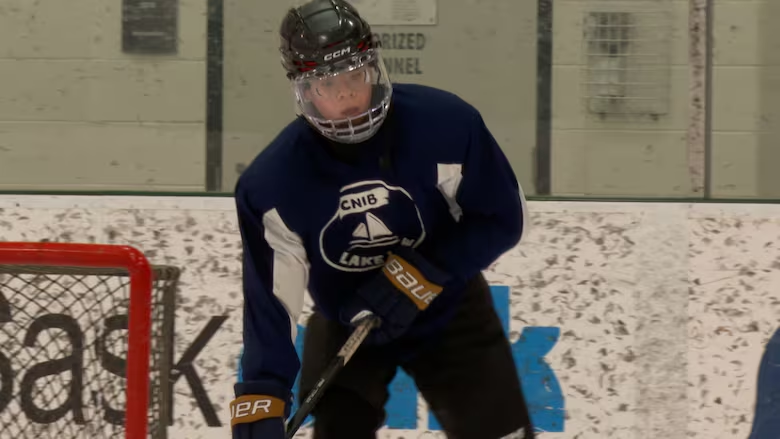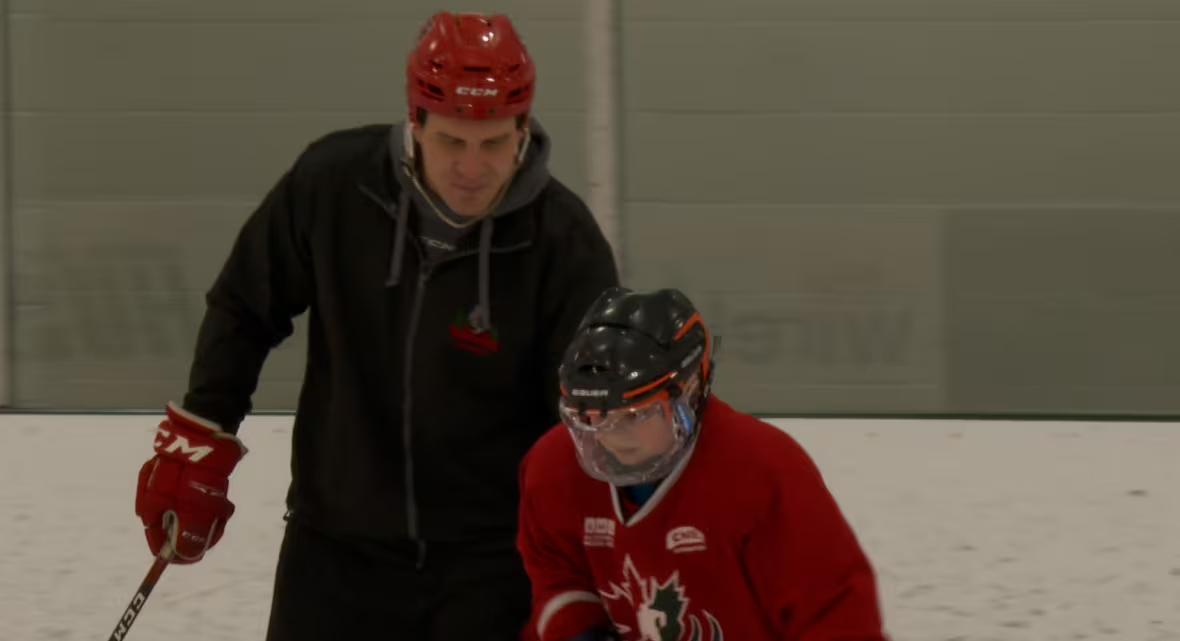A league of their own: Saskatoon Blind Hockey continues to grow
League gives blind players opportunity to learn skills, enjoy game

Adam Kugler-Sprayson has dreams of lacing up his skates for the Canadian National Blind Hockey Team and, with a little work, he just might get there.
"I'm considered as a prospect for the team so sometimes they call me up and invite me to some of those tournaments," said Kugler-Sprayson. "It's very competitive, very fun, but also very inclusive."
The 18-year-old is one of more than a dozen players who participate in the Saskatoon Blind Hockey League. The league is in its third season and continues to grow, with players ranging from six-year-olds to adults.
Players must be legally blind, meaning they have no more than 10 per cent of their vision, while goalies must be fully blind. From a distance, sessions look like any other hockey practice, but with a closer look and listen, there are a few more quirks.
"First of all, the net is smaller and that's just for obvious reasons, that the goalie is there 100 per cent blind and they can't hear the puck in the air, and the second adaptation is the puck, which is three times bigger than a regular puck and is made of metal," said Kugler-Sprayson.
On one half of the ice there are the high-level players like Kugler-Sprayson and on the other half are the younger players who are still learning their basic hockey skills like skating, shooting and passing.

They are all under the watchful eye of first-year coach John Flatters. He is a former Western Hockey League player and coached at different levels of youth hockey before coming to the Saskatoon Blind Hockey League.
With a few tweaks, Flatters said he coaches these players like any other players he's coached.
"You can really train a player the exact same way as you would a regular, sighted hockey player," said Flatters. "A lot of the drills are very much the same, maybe minor modifications for either the skill level or the age level, but, I mean, hockey is hockey, no matter where you go."
One of those younger players is Emma Crosson. She tried blind hockey in January 2023, when the University of Saskatchewan Huskies hosted a camp for partially sighted and blind youth players, and fell in love with the game. And with each practice, her skills continued to grow.
"You get to hit pucks that make noise and I get my dad on my team for coaching" said Crosson. "We play games and practice our skating technique."

For Kugler-Sprayson, the blind hockey league gives him a chance to compete that he might not get, otherwise.
"It's honestly very wonderful because everyone has the same skillset, I guess" said Kugler-Sprayson. "It makes it a lot more fun to know that it's fair."


